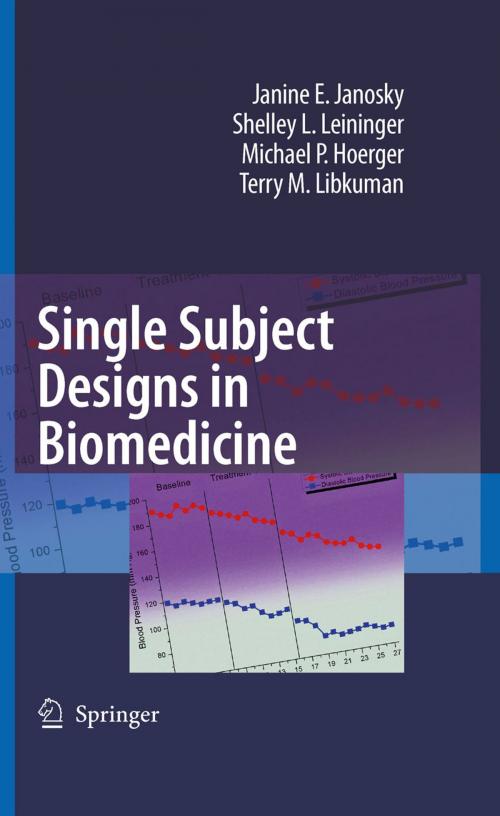Single Subject Designs in Biomedicine
Nonfiction, Health & Well Being, Medical, Specialties, Critical Care, Science & Nature, Mathematics, Statistics| Author: | Janine E. Janosky, Shelley L. Leininger, Michael P. Hoerger, Terry M. Libkuman | ISBN: | 9789048124442 |
| Publisher: | Springer Netherlands | Publication: | July 7, 2009 |
| Imprint: | Springer | Language: | English |
| Author: | Janine E. Janosky, Shelley L. Leininger, Michael P. Hoerger, Terry M. Libkuman |
| ISBN: | 9789048124442 |
| Publisher: | Springer Netherlands |
| Publication: | July 7, 2009 |
| Imprint: | Springer |
| Language: | English |
Single Subject Designs in Biomedicine draws upon the rich history of single case research within the educational and behavioral research settings and extends the application to the field of biomedicine. Biomedical illustrations are used to demonstrate the processes of designing, implementing, and evaluating a single subject design. Strengths and limitations of various methodologies are presented, along with specific clinical areas of application in which these applications would be appropriate. Statistical and visual techniques for data analysis are also discussed. The breadth and depth of information provided is suitable for medical students in research oriented courses, primary care practitioners and medical specialists seeking to apply methods of evidence practice to improve patient care, and medical researchers who are expanding their methodological expertise to include single subject designs. Increasing awareness of the utility in the single subject design could enhance treatment approach and evaluation both in biomedical research and medical care settings.
Single Subject Designs in Biomedicine draws upon the rich history of single case research within the educational and behavioral research settings and extends the application to the field of biomedicine. Biomedical illustrations are used to demonstrate the processes of designing, implementing, and evaluating a single subject design. Strengths and limitations of various methodologies are presented, along with specific clinical areas of application in which these applications would be appropriate. Statistical and visual techniques for data analysis are also discussed. The breadth and depth of information provided is suitable for medical students in research oriented courses, primary care practitioners and medical specialists seeking to apply methods of evidence practice to improve patient care, and medical researchers who are expanding their methodological expertise to include single subject designs. Increasing awareness of the utility in the single subject design could enhance treatment approach and evaluation both in biomedical research and medical care settings.















